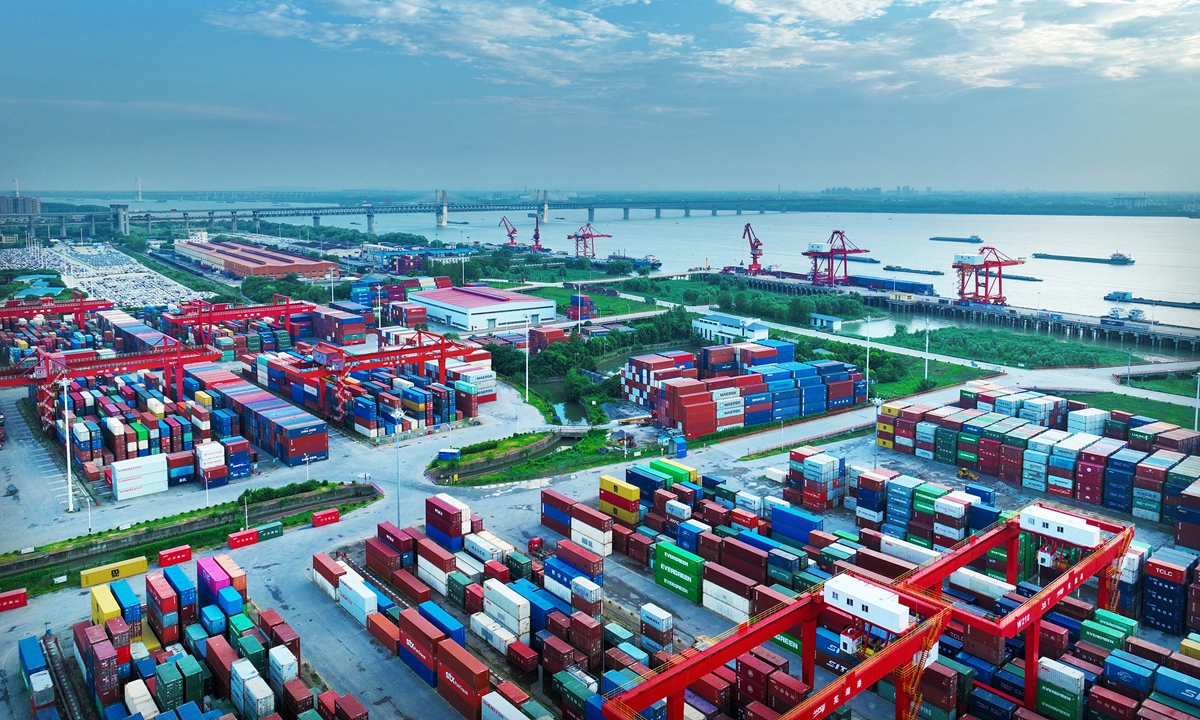
Photo: CFP
Chinese policymakers are stepping up measures to boost the economic recovery, including swiftly implementing the country's 1 trillion yuan ($137 billion) additional special bond plan to boost investment and demand, and they're vowing to ramp up fiscal policy in 2024, marking the latest effort to ensure stable growth in 2024.
Coming after the tone-setting Central Economic Work Conference, which underlined policy measures to further consolidate the economic recovery, the new efforts by the National Development and Reform Commission (NDRC), the top economic planner, and the Ministry of Finance (MOF) demonstrated policymakers' commitment and ability to keep the economy stable and promote high-quality development despite challenges, analysts said.
The NDRC said on Saturday that it has issued the list of projects for the second batch of additional treasury bonds. The batch involves more than 9,600 projects, which will receive a total of 560 billion yuan in government bond funds, the agency said in a statement on its website.
This came less than two weeks after the NDRC released the list of projects for the first batch of additional treasury bonds, in a bid to support post-disaster recovery and reconstruction and the improvement of disaster prevention, reduction and relief capabilities. In total, the two batches would involve the issuance of additional treasury bonds exceeding 800 billion yuan.
In October, China announced plans to issue an additional 1 trillion yuan in treasury bonds during the fourth quarter for post-disaster reconstruction. Analysts said at the time that the move was a timely and pragmatic move in response to dynamic developments in the economy, and it will lay a solid foundation for a sound start of the world's second-largest economy next year. It would also help optimize the local debt structure and ease the fiscal burdens of local governments.
Judging from the economic development in the second half of this year, it can be said that the momentum of recovery has been further consolidated, and some positive signals have emerged. In particular, there are positive signals in terms of foreign investment and domestic consumption that drive economic growth, Li Changan, a professor at the Academy of China Open Economy Studies of the University of International Business and Economics, told Global Times on Sunday.
The MOF held the national fiscal work conference from Thursday to Friday, which stressed that China will continue to implement a proactive fiscal policy in 2024 with "appropriate strengthening and improved quality and efficiency." Specifically, fiscal policy will be ramped up to support key areas in 2024, including promoting industrial upgrading and expanding domestic demand, according to the meeting.
In terms of fiscal and monetary policy, there are still plenty of tools available for Chinese policymakers, Li said, noting that fiscal policy will likely be ramped up to boost the economic recovery, including the issuance of the special bond and tax and fee reductions.
The Central Economic Work Conference outlined measures to tackle challenges facing the Chinese economy, and further promote and consolidate the economic recovery. Apart from stabilizing the economic recovery, the conference also put heavy emphasis on high-quality development.
Cao Heping, an economist at Peking University, said that while China's economy may be somewhat slower in terms of the GDP growth rate during the transition toward the digital economy, the speed in the upgrading of the country's economic structure is very fast.
"We should build up confidence in this. As long as the process of China's economic transition to a modern economic structure is steady, rapid and sustainable, we can't lose sight of our goals," Cao told the 2024 Global Times Annual Conference held on Saturday in Beijing. "China's future is particularly bright. I firmly believe this."
Other analysts said that scientific and technological innovation will be the key to China's long-term sustained and high-quality development.
China needs to widely apply advanced technologies including artificial intelligence, big data and quantum computing throughout its economy in order to achieve Chinese modernization, as the traditional path of industrial modernization may not be appropriate for China given the country's large population, He Weiwen, senior fellow at the Center for China and Globalization, said at the Global Times annual conference.



